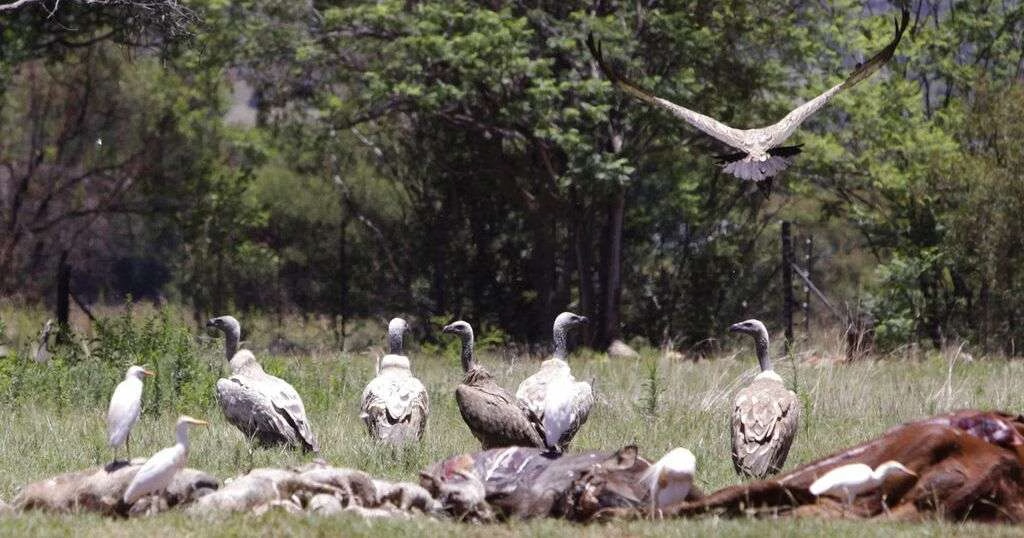In a devastating turn of events, at least 124 vultures perished in South Africa’s renowned Kruger National Park after consuming the carcass of an elephant laced with agricultural pesticides by poachers. This heartbreaking incident highlights the escalating threat of poisoning to these magnificent birds. Park authorities sprang into action, rescuing 84 vultures in a daring emergency response that involved helicopters, ambulances, and a full day of intensive care, although one of the rescued birds sadly succumbed to the poison later.
The discovery of this mass poisoning was made possible by a remote sensing system employed by an environment group, which triggered an alarm upon detecting suspicious activity in a remote area of the park. A joint team was swiftly mobilized, and within hours, they had uncovered the largest mass poisoning event of its kind in southern Africa. The victims included 102 white-backed vultures, 20 Cape vultures, and one lappet-faced vulture, all of which are listed as endangered or critically endangered.
Experts warn that poachers are increasingly resorting to using agricultural toxins on elephant carcasses to eliminate vultures, which might otherwise alert rangers to their presence by circling overhead. This malicious tactic not only harms these incredible birds but also has far-reaching consequences for the ecosystem. Vultures play a vital role in consuming the carcasses of dead animals, thereby reducing the spread of diseases. Unfortunately, many vulture species in Africa are facing the threat of extinction due to poisoning and other dangers.
The Kruger National Park incident serves as a stark reminder of the urgent need to protect these magnificent creatures and their habitats. As the world grapples with the challenges of conservation, it is essential to acknowledge the crucial role that vultures play in maintaining the delicate balance of ecosystems. The loss of these birds would not only be a tragedy but also have severe implications for the environment and human health. It is imperative that we take collective action to prevent such senseless killings and ensure the long-term survival of these incredible birds.
